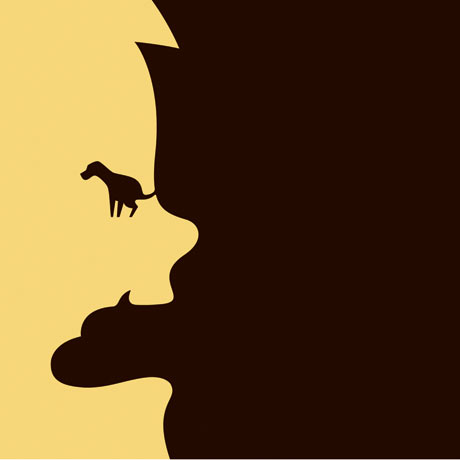
In a famous investigation of disgust, the psychologist Paul Rozin asked people to eat fudge that had been moulded to look like dog faeces, and drink soup from a brand new, pristine bedpan. These were educated adults, raised in a rationalist culture; they knew the fudge was fudge, the bedpan clean. Still, many recoiled (maybe you did, too, just reading that) and showed a marked preference for food that less closely resembled what all food eventually becomes. Nor is disgust the only realm in which our responses blatantly contradict what we know, as visitors to Toronto discover when they step on to the glass-bottomed viewing deck of the 553m-high CN Tower. I knew the floor was secure, but my lurching stomach didn't agree. There's a good restaurant at the top of the tower, but take my advice: visit it after the viewing deck.
The philosopher Tamar Gendler has coined the word "alief" to describe what's going on in our minds here. If beliefs are conscious responses to how we think things are, aliefs are more slippery: they're responses, also sometimes conscious, to how things seem. You can believe one thing while alieving another. Gendler once forgot her wallet at a conference, so borrowed cash from a colleague – then reached into her bag to find her wallet, to stash away the money. "Although I believed my wallet was several hundred miles away... I alieved something very different," she recalls. "The alief had roughly the following content: 'Bunch of money. Needs to go into a safe place. Activate wallet-retrieval motor routine now'." You can believe the fudge is fine, yet alieve that turd-shaped things are repellent.
It's tempting to accuse Gendler of hairsplitting: do we really need a new word to describe what are, presumably, hard-wired or learned responses? She's not concerned with causes, though, but with capturing the state of mind involved. Our existing vocabulary leads us to think of Rozin's disgusted subjects as behaving irrationally. "Alief" allows for another possibility: that you can be absolutely, rationally convinced of something, yet also alieve – and thus behave – quite differently.
This view of the mind as multifaceted, a place where rational, strongly-held beliefs can coexist with aliefs, suggests why behaviour change is so hard. Public health campaigners sometimes assume the way to get people to stop eating junk food, say, is to make sure they're convinced of – that they really believe in – its dangers. But they may already fully believe that; likewise, if you're a chronic procrastinator, you probably don't need persuading that procrastination's bad. Some kind of alief (associating Big Macs with comfort and security, perhaps, or completing your work with being judged) may be interfering. Unlike beliefs, you can't rationally argue yourself into dropping an alief. A more fruitful approach might echo "exposure therapy", used to treat phobias: stock your fridge with healthy stuff. Sit down at your desk, over and over. Chip away at the alief.
Not that alief's all bad: as Paul Bloom observed in an essay drawn from his forthcoming book, How Pleasure Works, the concept might explain the pleasures of fiction. No need for tricksy notions such as the "suspension of disbelief"; we simply believe that novels and movies are imaginary, while holding aliefs that let us derive pleasure from them as though they were real. Got it? Good. Now, can I interest you in a piece of fudge?
oliver.burkeman@theguardian.com

